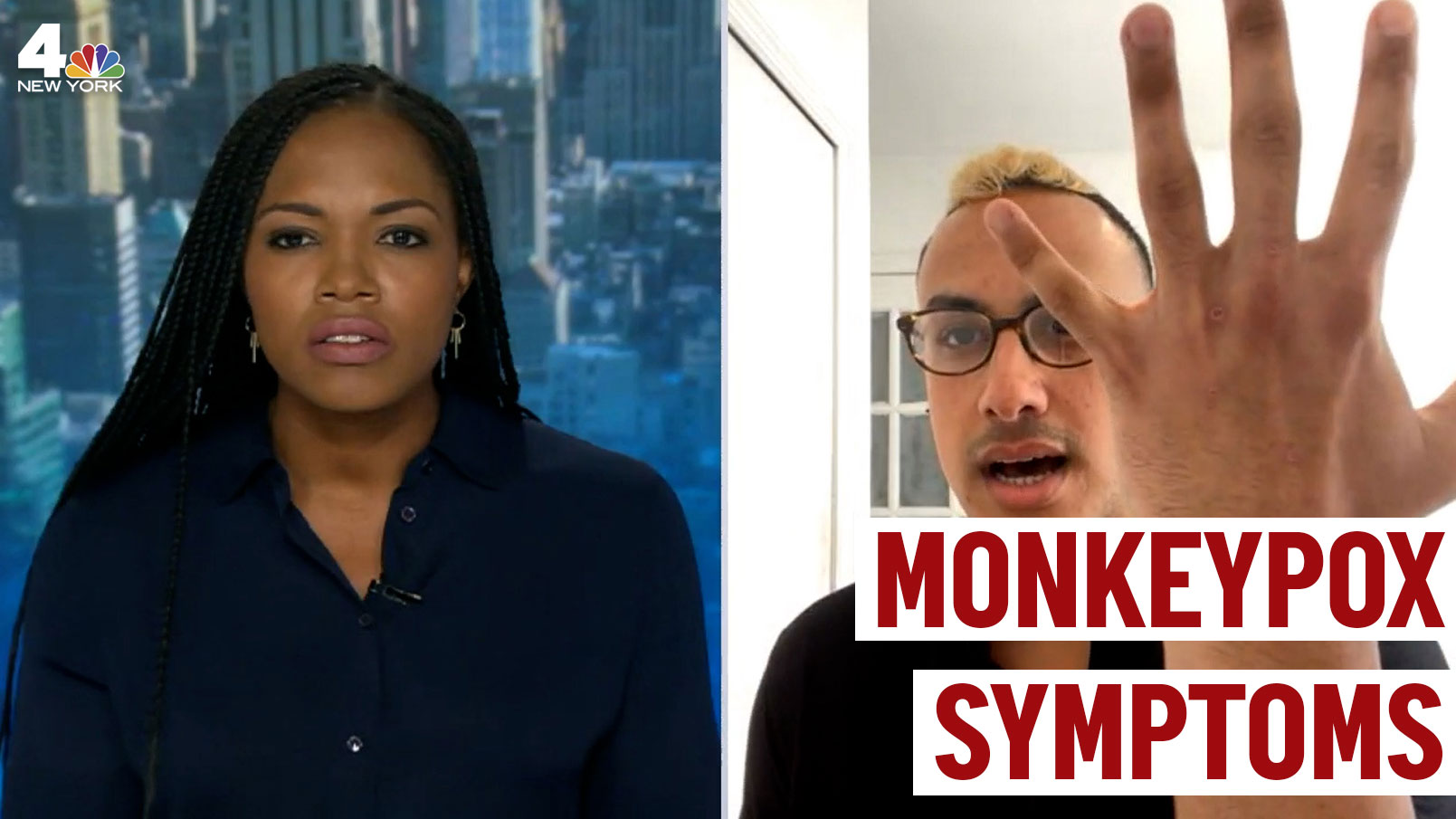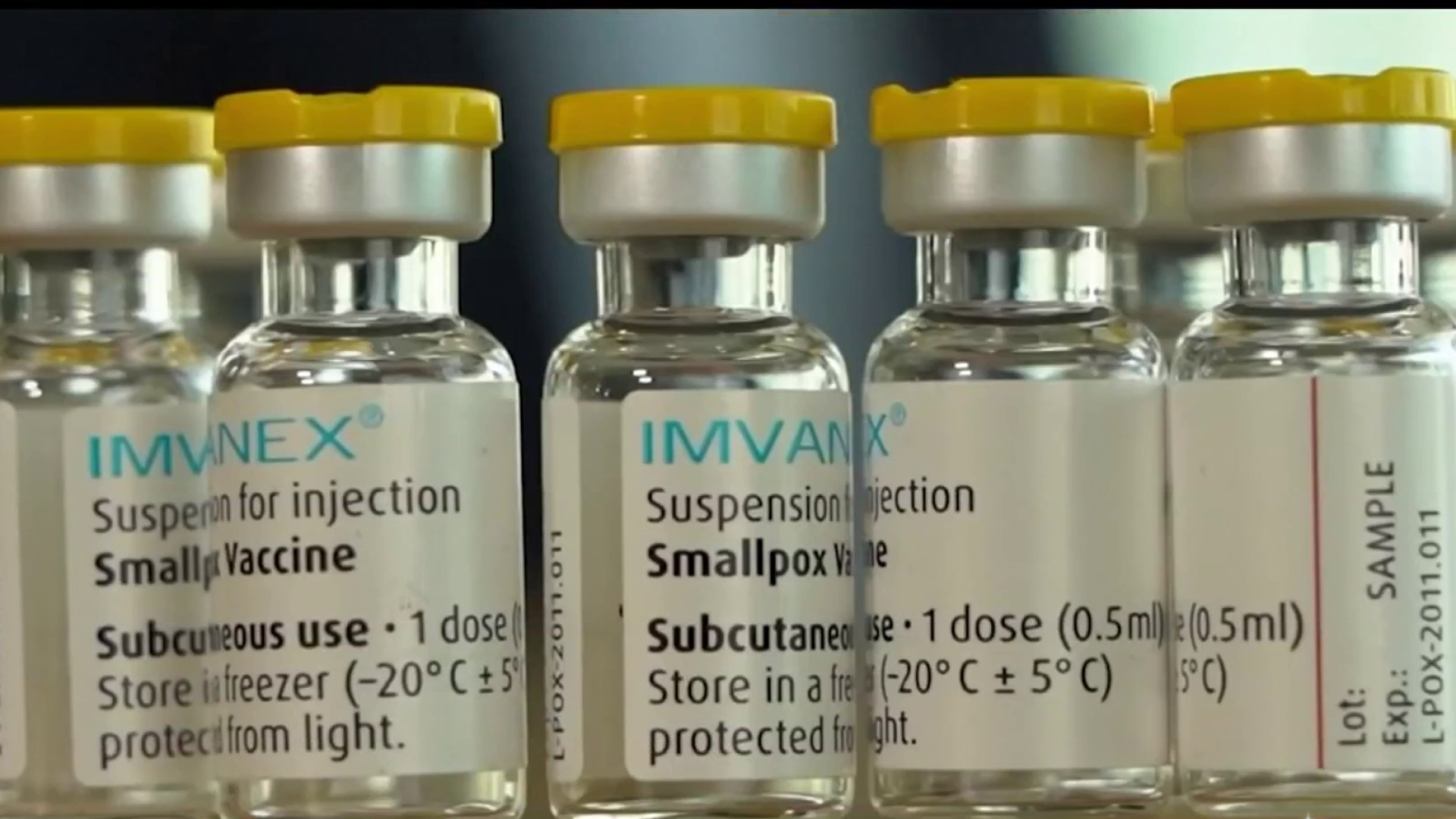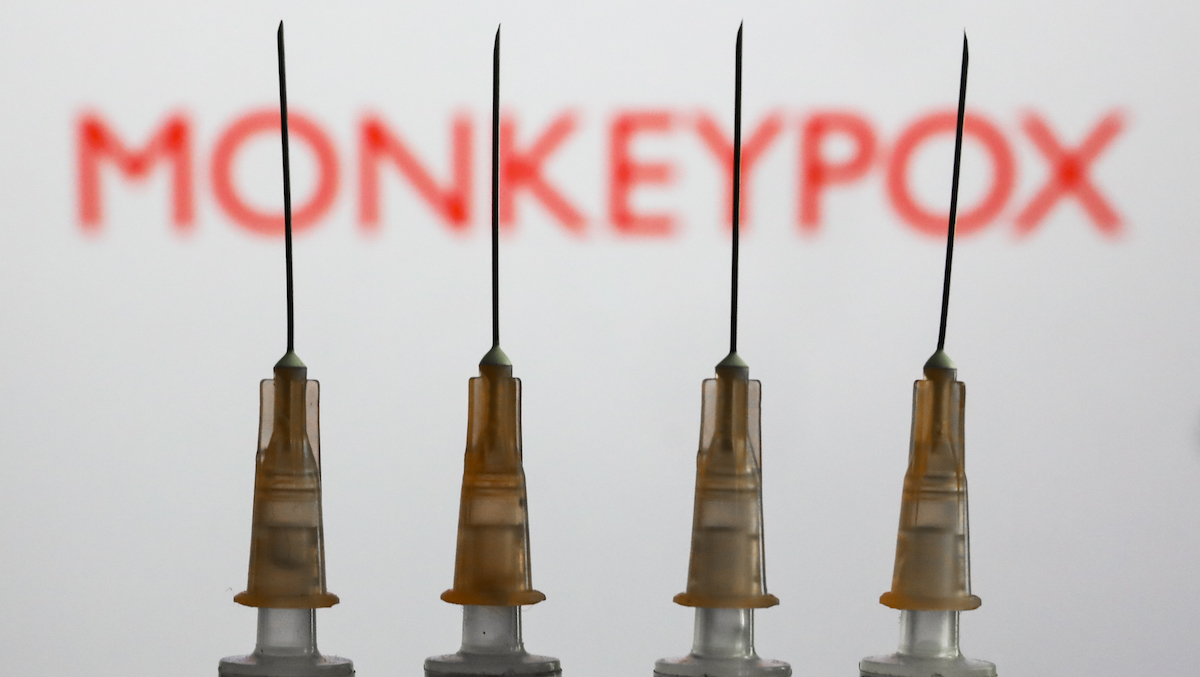What to Know
- The United States is in the midst of its largest-ever monkeypox outbreak, and while there is an existing vaccine for this virus, getting a vaccine appointment has proven difficult in NYC, whether due to high demand or technological errors
- NYC accounts for more than 25% of US monkeypox cases, according to the CDC; at this point, eligibility is limited to gay, bisexual or other men who have sex with men and transgender, gender non-conforming or gender non-binary persons ages 18 and older who have had multiple or anonymous sex partners in the last 14 days,
- Monkeypox symptoms include fever, headache, muscle aches, and exhaustion. Lymph nodes can also swell. The incubation period is usually 7−14 days but can range from 5−21 days
Officials are scrambling to contain monkeypox in New York City, which finds itself the epicenter of another major public health crisis as the latest batch of reported cases keeps the Big Apple out ahead of all other state counts.
The city's department of health reported 618 positive cases on Monday, an increase of 34% since its Friday report, just one day after three mass vaccination sites opened for one day in the Bronx, Brooklyn and Queens.
Elected leaders and health officials across the city have decried the lack of vaccine supply (the city reportedly gets 10% of the country's supply but accounts for at least a quarter of all cases) and inequity in its distribution. A single clinic opened in Chelsea during the first rounds of vaccine slots before more followed in Harlem, Queens and Staten Island.
Get Tri-state area news delivered to your inbox.> Sign up for NBC New York's News Headlines newsletter.
“We are beginning to see a repeat of almost every challenge we faced in the early days of COVID — lack of testing capacity, lack of vaccine, lack of treatment. We learned these lessons the hard way during the last pandemic and should have been ready for this,” said Manhattan Borough President Mark Levine.
Levine published a seven-point "action plan" on Monday he hopes will turnaround the early hiccups, which have included significant technological errors in obtaining vaccine appointments. Here are Levine's seven steps:
- Give NYC its fair share of the vaccine
- Create a pre-registration appointment portal
- Increase access to testing
- Increase access to treatment
- Re-open the city's sexual health clinics
- Better educate clinicians and healthcare providers
- Focus on equity
The borough president's second point directly addresses the technological inefficiencies that have riddled the vaccine rollout to date. A pre-registration system, he argues, would allow New Yorkers to be ready ahead of appointment openings, especially ones that are geographically tied to zip codes.
Each of the five borough presidents signed a letter to the CDC requesting additional vaccines. They said that although they do not have a breakdown by borough, "Nationally, 1,813 cases have been diagnosed, of which 618 are here in New York City." The letter went on to state that the vaccine dosages the city has received is "woefully inadequate."
Rep. Ritchie Torres (NY-15) has added his voice to the New Yorkers frustrated by the government response to a virus outbreak. On Monday morning, he called on Health and Human Services to investigate "the subpar rollout of testing, vaccinations, and educational material regarding" the outbreak.
Meanwhile, the city's health commissioner over the weekend classified the outbreak as a pandemic. He toured the mass vaccination site in the Bronx where he addressed the early hiccups of the city's outbreak response and described its hurdles "fighting two pandemics at once."
"The fact is, you've got higher than normal transmission of an illness in multiple countries, across multiple continents. So that's the definition the technical definition of a pandemic," the health commissioner said.
City health officials have shifted their vaccine distribution strategy when it comes to second doses, instead delaying the additional shots in order to get more first doses done as quickly as possible. That adjustment helped the city make an additional 1,000 first dose appointments available in Friday evening's blitz.
City Hall has now formally asked the Biden Administration to delay those second doses, precisely so it can get more first doses in arms while supply is constrained.
"We made a choice last week to prioritize first shots because my scientists looked at the data and said the first shot provide sufficient protection. Not as much as two shots, but significant," Vasan added.
There are another 33 monkeypox cases in New York's other counties, with Westchester now home to the second-most, with 16 confirmed cases. The plan for vaccination is also underway there, with several hospitals and community health centers administering 450 vaccine doses. Another 520 will be available starting July 18, by appointment only at the Count Health Clinic on Court Street.
Gov. Kathy Hochul said Friday that another 32,000 doses from the federal government will be heading to New York and the city starting next week.
At this point, eligibility in New York City is limited to "gay, bisexual or other men who have sex with men and transgender, gender non-conforming or gender non-binary persons ages 18 and older who have had multiple or anonymous sex partners in the last 14 days," under the guidelines released by the health department. Learn more here.
While monkeypox is highly contagious and typically confined to the African continent, health officials say the risk to the general U.S. public is low. They say this isn't COVID all over again because vaccines already exist to treat orthopoxvirus, the family of viruses to which monkeypox and diseases like smallpox and chickenpox belong.
The city is also launching more active messaging, saying people could now receive text alerts about the virus and new appointment openings by texting MONKEYPOX to 692692, or MONKEYPOXESP for alerts in Spanish.
Getting one's hands on a first dose has been difficult, as only a few thousand appointments have opened in the past few weeks. And the portal used to make the appointments hasn't exactly been working the way officials hoped it would.
Last Tuesday, appointments ran out almost immediately after a wave of errors left many people unable to even access the booking website. The city Health Department said that the scheduling site went down "due to a high level of traffic" — a problem that many are hoping has been remedied in time for Friday's release.
That hiccup followed what the city said was an "unfortunate glitch" the week before. A July 6 error opened the appointment window prematurely, prompting a flood of confusion and a flurry of apologies from city health officials as they worked to correct the problem.
All of the 2,500 appointments inadvertently released were again scooped up extremely quickly, within 10 minutes. The city said that the glitch was the result of a third-party vendor, not the department itself. The department later said it would honor all of the erroneously made appointments from earlier in the day.
What Is Monkeypox?
Monkeypox was first discovered in 1958, when outbreaks occurred in colonies of monkeys kept for research -- resulting in its name. (What you need to know about monkeypox.)
The first case in a human was reported in 1970 in the Democratic Republic of the Congo, which still has the majority of infections. Other African countries where it has been found: Cameroon, Central African Republic, Cote d’Ivoire, Democratic Republic of the Congo, Gabon, Liberia, Nigeria, Republic of the Congo and Sierra Leone.
Human symptoms of monkeypox are similar to but milder than the symptoms of smallpox, the CDC says. It presents itself as a flu-like illness accompanied by lymph-node swelling and rash on the face and body.
Monkeypox starts off with fever, headache, muscle aches, and exhaustion. Monkeypox also causes lymph nodes to swell, something that smallpox does not. The incubation period is usually 7−14 days but can range from 5−21 days.
The CDC is urging healthcare providers in the U.S. to be alert for patients who have rashes consistent with monkeypox, regardless of whether they have traveled or have specific risks. See more information from the travel notice here.




